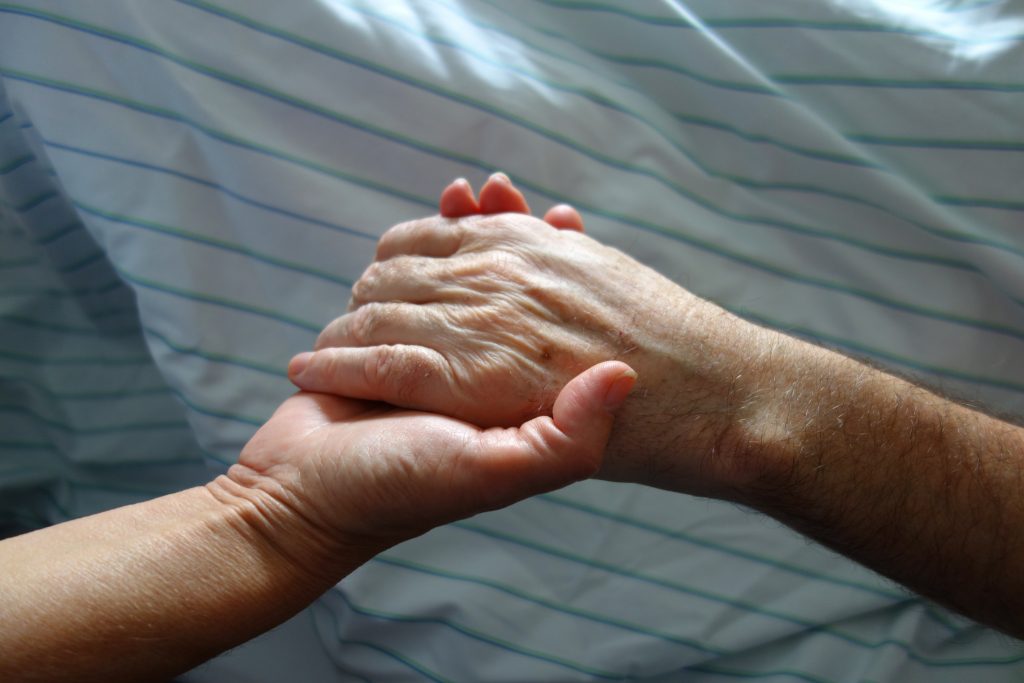Americans have notoriously short memories, and this year, legislators in California are proving it through Senate Bill 380, a bill that would remove mental health safeguards for terminal patients to end their lives faster than ever.
In 2015, Californians fought against the End of Life Option Act (physician-assisted suicide), saying that it disproportionately preyed upon the disabled, the elderly, non-English speakers, and those in poor communities. We argued for the importance of quality health care for those at the end of life and the critically positive role palliative care and hospice play for patients and their families.
After a year of global pandemic, with staggering death tolls, immeasurable mental health concerns and health care inequality laid bare before the entire world, it is baffling to face legislation calling for faster ways for patients to kill themselves.
Built into the End of Life Option Act is a sunset date of 2026 — a reassessment after 10 years to see how the law is being used and whether changes and/or the law itself are needed.
In the intervening years since the passage of the act, there has been very little evidence about how it is working. Because there is no mandatory reporting requirement in the End of Life Option Act, there is very little data available, and what data is offered cannot be assumed to be a representative sample. We do not actually know whether a patient takes the lethal drugs themselves or is given them by someone else. We don’t know if a patient has changed their mind but someone else then coerces them.
Also missing in the End of Life Option Act is any mandate for a mental health assessment. One can be requested, but it is not considered an integral part of an assisted suicide conversation, despite depression being a common experience among people with a terminal diagnosis.
SB 380 would remove what few commonsense guides remain. SB 380 eliminates the sunset date and enshrines assisted suicide into California law without any ability to gather or evaluate accurate data. The need for assessment is so great that the act gained support initially because there was a promised 10-year review.
Removing it now eliminates any opportunity to hear testimony about the End of Life Option Act and determine how it is being used, particularly in the most vulnerable communities. Most importantly, eliminating the sunset date removes the opportunity for Californians to decide we no longer want assisted suicide in our state.
SB 380 drastically reduces the commonsense waiting period, reducing limited protection for those suffering from depression or mental illness. Currently, the End of Life Option Act requires that a patient make two verbal requests for life-ending drugs to a physician, 15 days apart.
At the time the law was enacted, this 15-day waiting period was strongly supported by California physicians as a necessary precaution for vulnerable patients. Now, SB 380 seeks to shorten that period to a mere 48 hours, despite evidence that depression is common, and without any mandatory mental health assessment.
It is difficult to imagine that at a time of unprecedented mental health concerns, any legislator would be pushing for a vulnerable group to have quicker access to medication intended to end their lives. Let us also remember that many of these terminally ill patients are the very grandparents living in nursing homes that we spent this last year working so hard to protect!
We may also remember March 2020, when New York Gov. Andrew Cuomo was facing potential health care rationing. He famously stated, “My mother is not expendable. And your mother is not expendable.” How soon we forget the lessons learned during the pandemic — that the lives of the most vulnerable need our care and protection.
We may remember throughout last summer and fall, we were forced to face the inequities of health care in our country — the great chasm that separates those with reliable health care and those without. With one voice, our nation affirmed that one life is not worth more than another, that quality health care is a human right, and that life itself matters.
Why then, would our California legislators attempt to pass SB 380 at this time? We spent the last year honoring our heroic health care professionals who fought for the lives of every person, no matter their age, socio-economic status, or health condition. Why would we now assert that the lives of the disabled, elderly, or ill are not worthy of respect or even minimal safeguards against coercion?
The Catholic community in California can play a critical role in affirming the inherent dignity of every person, particularly those at the very end of life. Now is the time to contact your state senator and assemblymember. Ask them to oppose SB 380. Tell them we must have a sunset date so we can accurately determine how assisted suicide works in our state and protect the most vulnerable. Find more information at: cacatholic.org/action-alerts.

